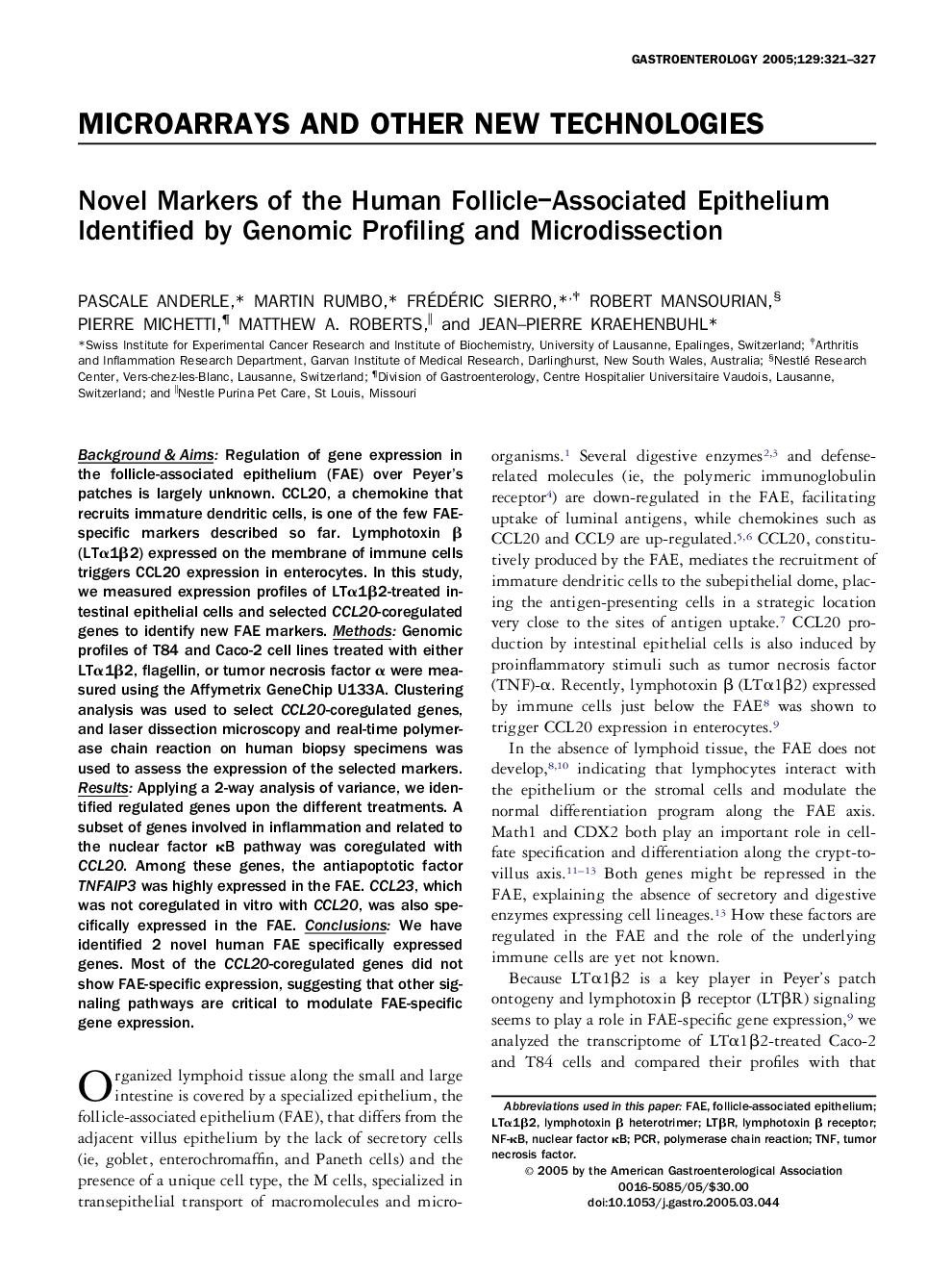| Article ID | Journal | Published Year | Pages | File Type |
|---|---|---|---|---|
| 9245191 | Gastroenterology | 2005 | 7 Pages |
Abstract
Background & Aims: Regulation of gene expression in the follicle-associated epithelium (FAE) over Peyer's patches is largely unknown. CCL20, a chemokine that recruits immature dendritic cells, is one of the few FAE-specific markers described so far. Lymphotoxin β (LTα1β2) expressed on the membrane of immune cells triggers CCL20 expression in enterocytes. In this study, we measured expression profiles of LTα1β2-treated intestinal epithelial cells and selected CCL20-coregulated genes to identify new FAE markers. Methods: Genomic profiles of T84 and Caco-2 cell lines treated with either LTα1β2, flagellin, or tumor necrosis factor α were measured using the Affymetrix GeneChip U133A. Clustering analysis was used to select CCL20-coregulated genes, and laser dissection microscopy and real-time polymerase chain reaction on human biopsy specimens was used to assess the expression of the selected markers. Results: Applying a 2-way analysis of variance, we identified regulated genes upon the different treatments. A subset of genes involved in inflammation and related to the nuclear factor κB pathway was coregulated with CCL20. Among these genes, the antiapoptotic factor TNFAIP3 was highly expressed in the FAE. CCL23, which was not coregulated in vitro with CCL20, was also specifically expressed in the FAE. Conclusions: We have identified 2 novel human FAE specifically expressed genes. Most of the CCL20-coregulated genes did not show FAE-specific expression, suggesting that other signaling pathways are critical to modulate FAE-specific gene expression.
Keywords
Related Topics
Health Sciences
Medicine and Dentistry
Gastroenterology
Authors
Pascale Anderle, Martin Rumbo, Frédéric Sierro, Robert Mansourian, Pierre Michetti, Matthew A. Roberts, Jean-Pierre Kraehenbuhl,
